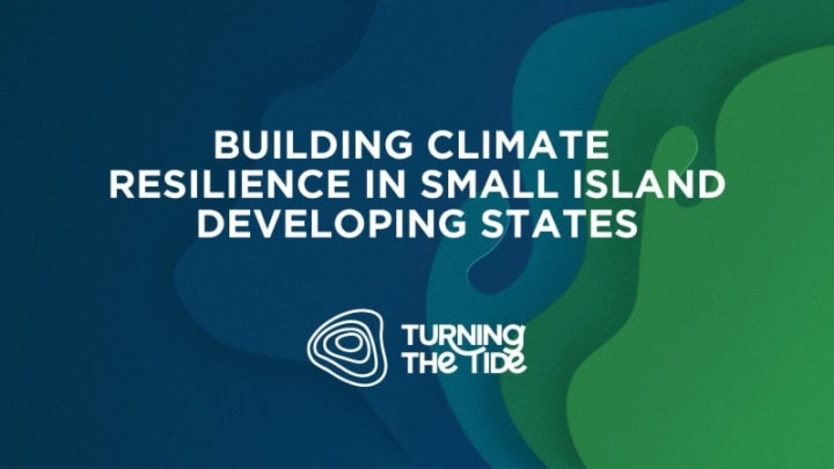BARCELONA — The unique traditions and cultures of small island developing states are jeopardized by the impacts of climate change, with some of the most vulnerable countries facing an imminent existential threat. “What happens once you lose that sovereignty? How is the global community going to address that?” said Palauan diplomat Ngedikes Olai Uludong in a wide-ranging interview with Devex for the Turning the Tide: Climate Champions series.
More from Turning the Tide: Climate Champions
► The role of volunteering in climate action
► Engaging Pacific youths in climate action with Komal Narayan
Uludong was raised by parents who were politically active in Palau’s independence movement and instilled in her a sense of passion for public service. She first became an environmental educator in her country before entering the diplomatic sphere, where she coordinated environmental and climate change work in Palau, the Marshall Islands, Nauru, and the Maldives.
Currently serving as Palau’s permanent representative to the United Nations, she was also the lead negotiator for the Alliance of Small Island States from 2012 to 2014, representing over 40 island nations at the U.N. climate change talks. “I learned that just because you’re from a small island doesn’t mean you can’t change the world,” she said of her experience in that role, which culminated in the landmark 2015 Paris Agreement.
Throughout her international experience, Uludong has maintained a strong sense of her Palauan identity and the values that it instills in her.
“Essentially, the defining force of what makes us unique is valuing the tradition and the culture of the environment and the people that live and thrive with it,” she said.
Palau has a long history of environmental protection and regulation, including one of the oldest concepts of marine protected areas, called “bul” — a moratorium on fishing during spawning and feeding that is aimed at conserving the archipelago’s 1,300 fish species. Under the leadership of President Tommy Remengesau Jr., Palau has expanded this to 500,000 square kilometers of its maritime territory — an area the size of France — through the creation of a “no-take” marine sanctuary to preserve Palau’s ocean resources and the world’s tuna stocks.
“The defining force of what makes us unique is valuing the tradition and the culture of the environment and the people that live and thrive with it.”
— Ngedikes Olai Uludong, Palauan diplomatLike many Pacific island nations, Palau — which has not registered any coronavirus cases so far — is taking strict measures to protect its population, including six weeks of quarantine for returning citizens. Uludong suggested that lessons can be learned from the global community’s response to the pandemic that can be transferred to the fight against climate change.
“For the COVID response, it tells us that some of the constraints of resources that have often been cited for delaying climate action are really constraints of the imagination,” she said, adding that the climate change movement requires the same shared sense of solidarity “rather than a retreat into ‘me-first’ isolation.”
Listen to the full interview with Uludong on SoundCloud and Spotify.
Visit the Turning the Tide series for more coverage on climate change, resilience building, and innovative solutions in small island developing states. You can join the conversation using the hashtag #TurningtheTide.

